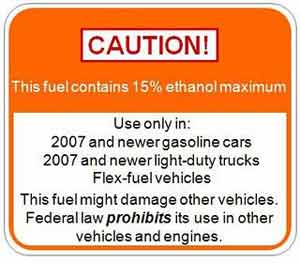
"We believe in a national renewable fuels policy, but one that is both safe for boaters and sound for the environment," said Wood, "However, until the current ethanol mandate is removed, there is little room for investment in other renewable fuels that may not have the current negative impact of corn-based ethanol." Wood explained that the real success would come if Congress changes the law to recognize today's decreasing fuel usage in the US.
In her testimony, Wood advised the EPA, "We want to commend the EPA for taking a giant step towards addressing the current day realities of the Renewable Fuel Standard with the drafting of the 2014 proposed renewable volumetric obligations. We applaud their pivotal recognition of the shrinking demand for fuel and hope this sends a signal to Congress of the dangers that an impending blend wall presents to the average consumer. The EPA is trying to do its part for the consumer in addressing these market changes, and now is the time for Congress to do so as well."
Wood added: "As the Renewable Fuel Standard policy pushes higher blends of ethanol gasoline into the market, there is an increased potential for misfueling and engine failure that needs to be made clear. Not all Americans can afford to drive tow vehicles made after 2001, and for boaters these higher blends are poison to our marine engines."
There is a critical safety and soundness issue related to the use of higher blends of ethanol in marine engines that cannot be denied. More than half of Boat Owners Association of The United States members fuel their boats at roadside gas stations. With 11 states now approved to sell E15 - a fuel that no marine engine is warrantied to run on - the opportunity for misfueling is growing. And what may result in a roadside breakdown for a car, can quickly lead to a search and rescue mission or search and recovery in a boat."
"We think it's also important to point out that EPA's role in the Renewable Fuel Standard is to implement the policy, not reform the law. Although there are implicit waiver authorities written into the law, the EPA shouldn't have to use that authority to modify policy to meet the realities of the current marketplace every year. It is the responsibility of the EPA and Congress however, to ensure that the fuel they approve for our consumers is a safe and reliable fuel for our engines, all engines. It is our hope that Congress will now accept the baton, and continue their work on a permanent fix for the Renewable Fuel Standard."
